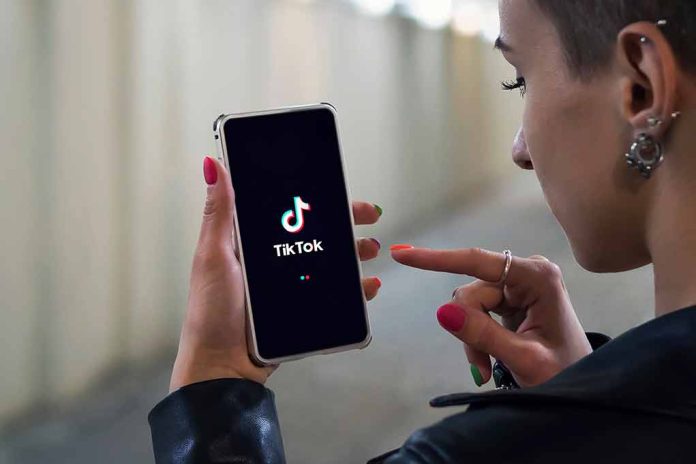
The U.S. Supreme Court is facing a crucial decision on whether TikTok must be sold by its Chinese parent company, ByteDance, amid concerns over free speech and national security.
At a Glance
- The Supreme Court is to rule on TikTok’s fate, balancing speech and security.
- TikTok may shut down in the U.S. if banned by January 19.
- ByteDance required to divest under proposed law.
- The Biden administration pushes the ban for security concerns.
A Historic Legal Battle
The U.S. Supreme Court is deliberating a pivotal case over TikTok, rooted in the tension between free speech rights and national security imperatives. Currently, a law demands that ByteDance must sell TikTok or face a U.S. ban, energizing discourse about whether regulations concerning foreign-owned processes impinge on constitutional liberties. This decision could establish a precedent for how America navigates digital operations tied to foreign governments deemed potential threats.
The case has garnered substantial attention, as evidenced by comments declaring its significance in the realm of free speech. Lawyers representing TikTok users and creators highlight, “Rarely if ever has the court confronted a free-speech case that matters to so many people.”
The Supreme Court will hear oral arguments today in the case involving the future of TikTok in the U.S., which could ban the popular app as soon as next week. https://t.co/GZ0heY5BNE
— NBC DFW (@NBCDFW) January 10, 2025
The Government’s Perspective
The Biden administration defends the proposed law, citing that China’s control over TikTok poses a significant national security risk. However, the government has openly admitted it lacks concrete evidence of China exploiting TikTok for information or influence. The law includes bipartisan support and was enacted to address these security concerns by requiring ByteDance to divest.
Chief Justice John Roberts remarked that “Congress is fine with the expression. They’re not fine with a foreign adversary, as they’ve determined it is, gathering all this information about the 170 million people who use TikTok.”
Some experts question if the law aligns with First Amendment protections. ByteDance has already engaged in discussions to address privacy concerns and contends that TikTok’s algorithm cannot be effortlessly separated.
If the pending TikTok ban is upheld by the Supreme Court, UMSI assistant professor Oliver Haimson warns it could have serious implications for free speech. Here’s why: https://t.co/siZwZfJUlS@oliverhaimson @UMichiganNews
— School of Information (@umsi) January 10, 2025
Potential Impacts
If the Supreme Court upholds the law, TikTok risks losing access to its vast U.S. user base and facing a substantial hit in advertising revenue. ByteDance has shown no intention to sell TikTok, though U.S. investors have expressed interest in acquiring its assets. Absent an acquisition, the app could become unavailable from key platforms, effectively making it obsolete.
TikTok has been a significant income stream for many creators, sparking further urgency for a resolution. The court’s final ruling will guide future digital policies concerning domestic operations of foreign-owned tech companies.





